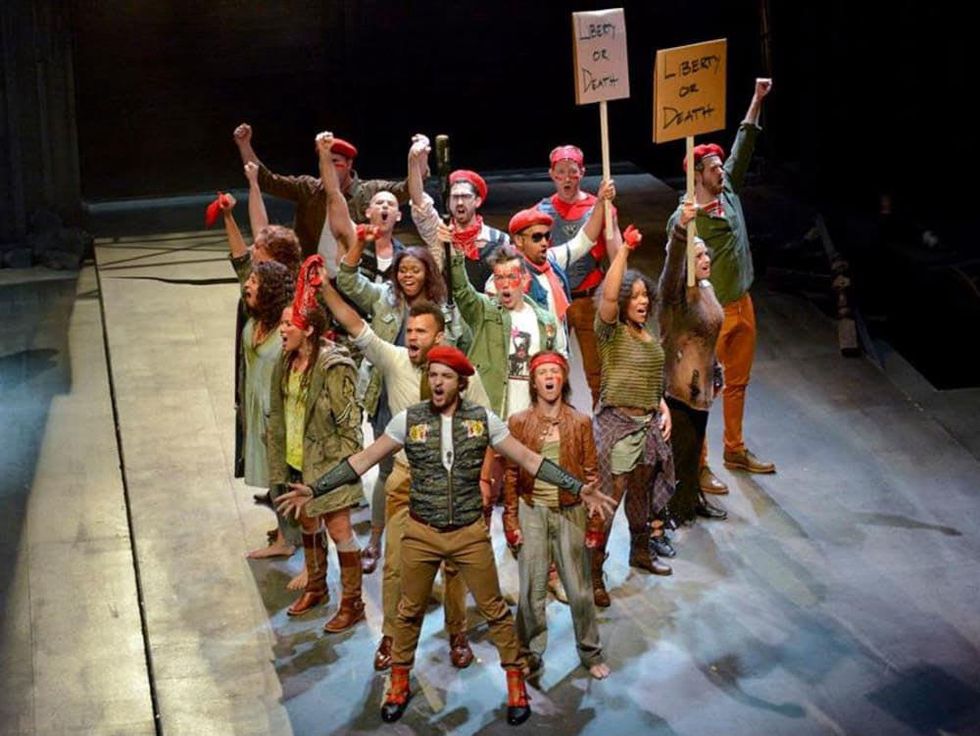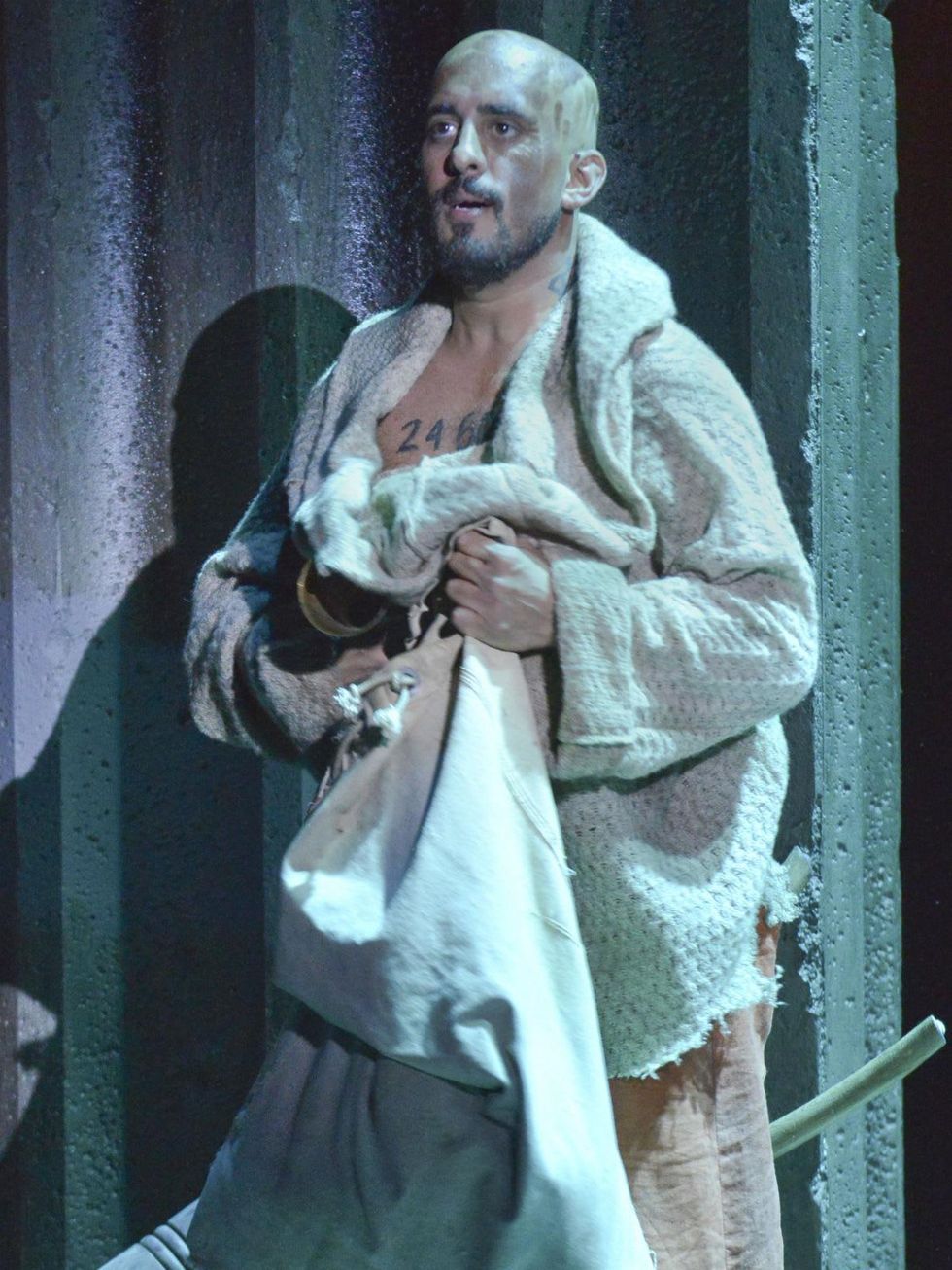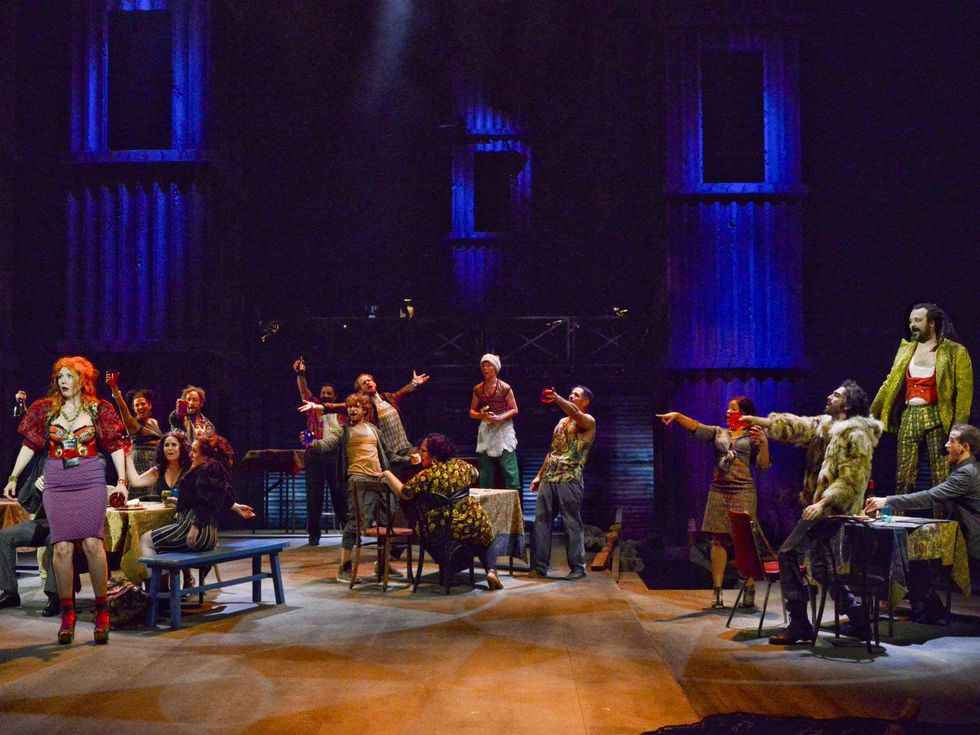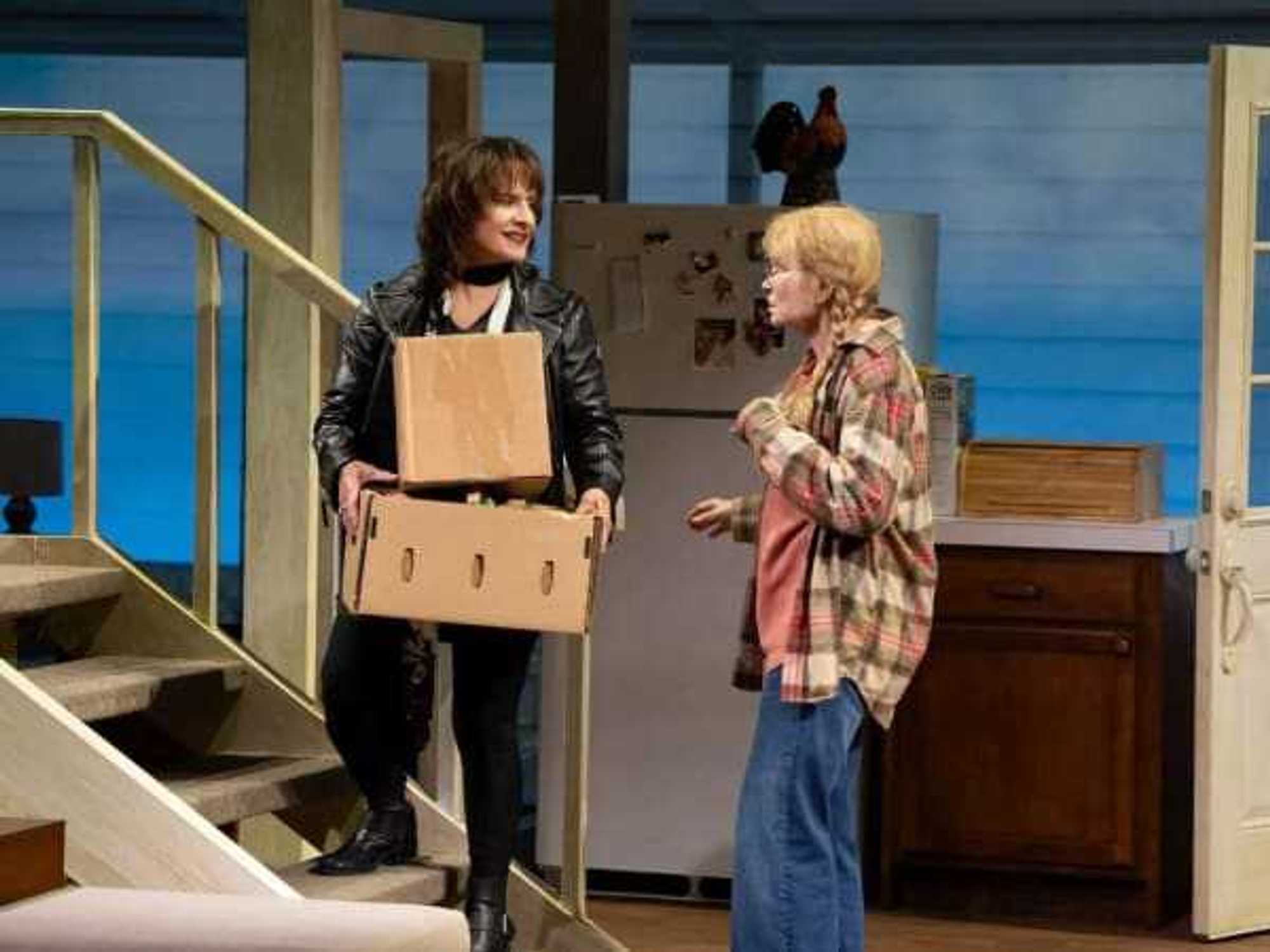Classic With a Twist
Dallas Theater Center's Les Misérables wows with the old but distracts with the new
Few theater productions are more iconic than Les Misérables. The musical, which premiered in London in 1985, is one of the longest running productions in theater history. For audiences, there is no stage catnip more irresistible than another Les Mis production, which Dallas Theater Center is banking on for its final production of the 2013-2014 season.
But DTC's version may take some getting used to for Les Mis purists. Although the story supposedly takes place in early 1800s France, all of the costumes and props are ultra-modern and vaguely American. This includes police dressed up in SWAT uniforms, contemporary weapons, and signs protesting everything from the need for a higher minimum wage to the ineptitude of the Veterans Administration.
DTC's ultra-modern version may take some getting used to for Les Mis purists.
The main stage at Wyly Theatre has also received another radical overhaul; it is tilted at an odd angle and juts way out into the audience. Other theater tricks include positioning the orchestra high up, behind the actors, and using multiple columns with openings from which actors can perform.
But the story and the songs remain the same, which is probably what most fans care about anyway. The epic journey of Jean Valjean (Nehal Joshi) from prisoner to respected businessman to a fugitive forever on the run still holds the power it did when Victor Hugo first wrote about it 150 years ago.
Valjean’s conflict with Inspector Javert (Edward Watts); his struggle to keep a promise to Fantine (Allison Blackwell) by taking care of her daughter, Cosette (Dorcas Leung); and his decision to help out young revolutionaries, led by Marius (Justin Keyes), all make for drama on the highest scale.
The songs, like “I Dreamed a Dream,” “Master of the House,” “Do You Hear the People Sing?” and “One Day More,” with a tonal continuity that connects almost every one of them, propel the musical forward like few others. The singing throughout lives up to the quality of the work, especially in the hands of Joshi, Watts and Elizabeth Judd, who plays Eponine.
Unless you can’t stand change, the updating of the production works in that you never really question why everyone is decked out in modern gear. However, you also get the feeling that DTC wants to have it both ways: They want to remain true to the original setting while also getting credit for adding modern elements.
I can’t quite go that far. It’s one thing to be anachronistic if you’re changing the production, but to do so purely for aesthetic or artistic reasons doesn’t really add anything to the proceedings. It’s fun and interesting on a visual level, but it doesn’t radically change how Les Mis is perceived.
Another of DTC's attention-grabbing tactics is color-blind casting. Fantine is played by Blackwell, an African-American, while her daughter, Cosette, is alternately played as a young girl by the Caucasian Jemma Kosanke or the Latina Salma Salinas before growing up to be Leung, who is Asian. There’s no explicit reason given for the switching of the races, so in the end it elicits nothing more than a shrug.
As it should be, what makes this version of Les Mis memorable are the performances. The casting of Joshi and Watts is literally pitch perfect, as both men’s voices command your attention and fill up the Wyly. On the female side, Judd makes the most of Eponine’s moments with her supremely mellifluous singing.
Although the musical is primarily a drama, its comedic moments are made uproarious by the inspired pairing of Steven Michael Walters and Christia Mantzke as the Thenardiers. In “Master of the House” and other scenes, they chew the scenery with all their might, but it works for their characters. Mantzke is especially good at dropping nearly inaudible asides to get a few extra laughs.
Although much of the attention for Dallas Theater Center’s rendition of Les Misérables has been focused on the amount of modernization it includes, it’s the faithful re-creation of the tried-and-true parts that make it another great production for Dallas’ best theater company.



